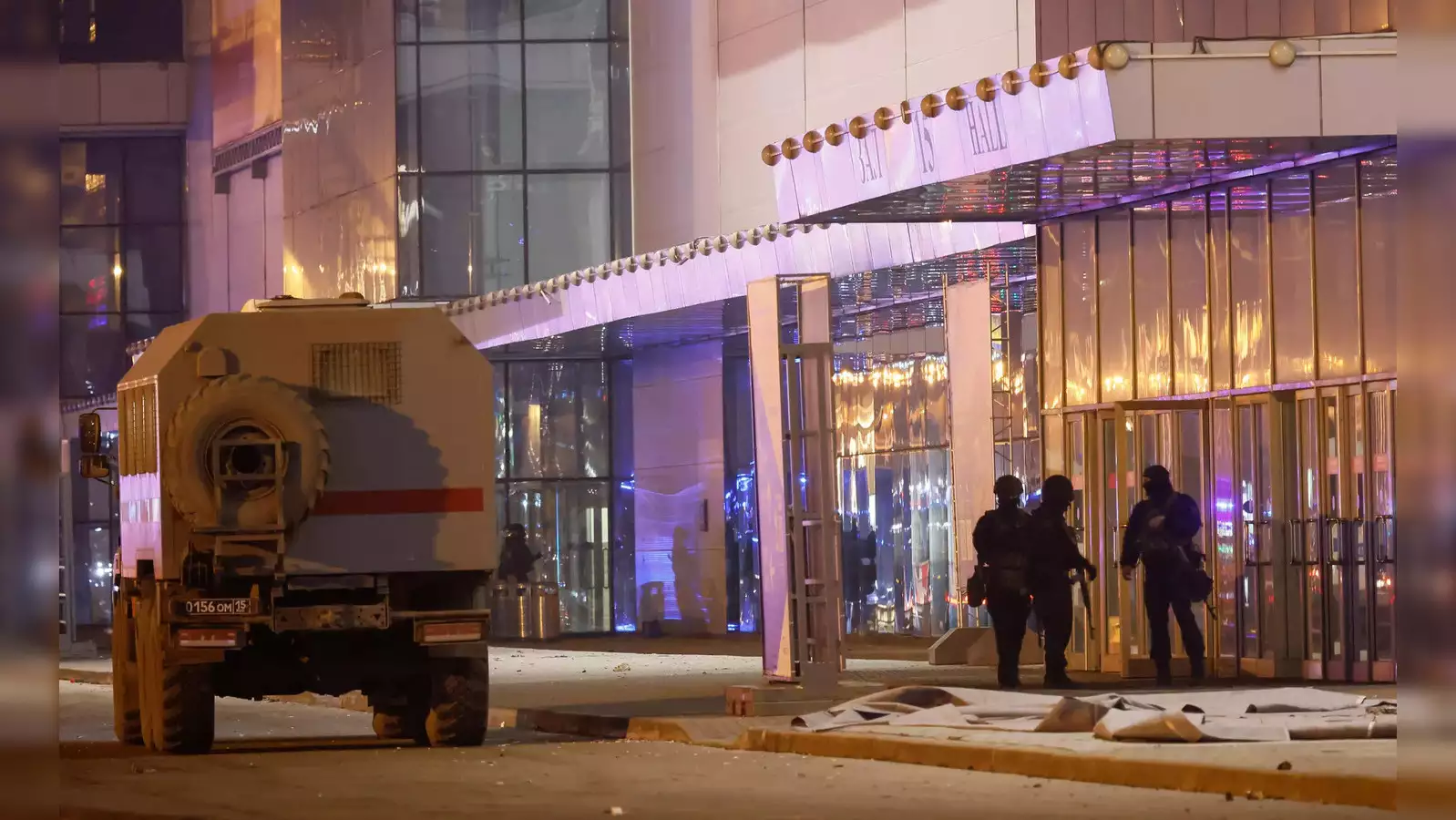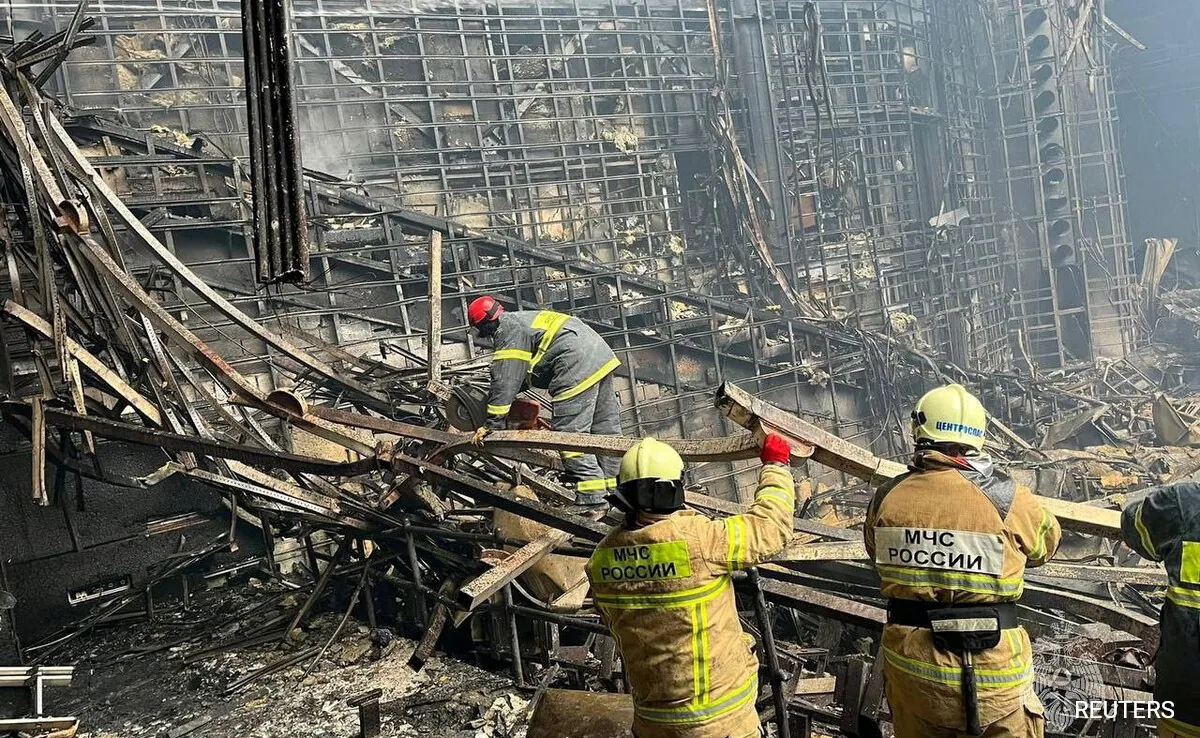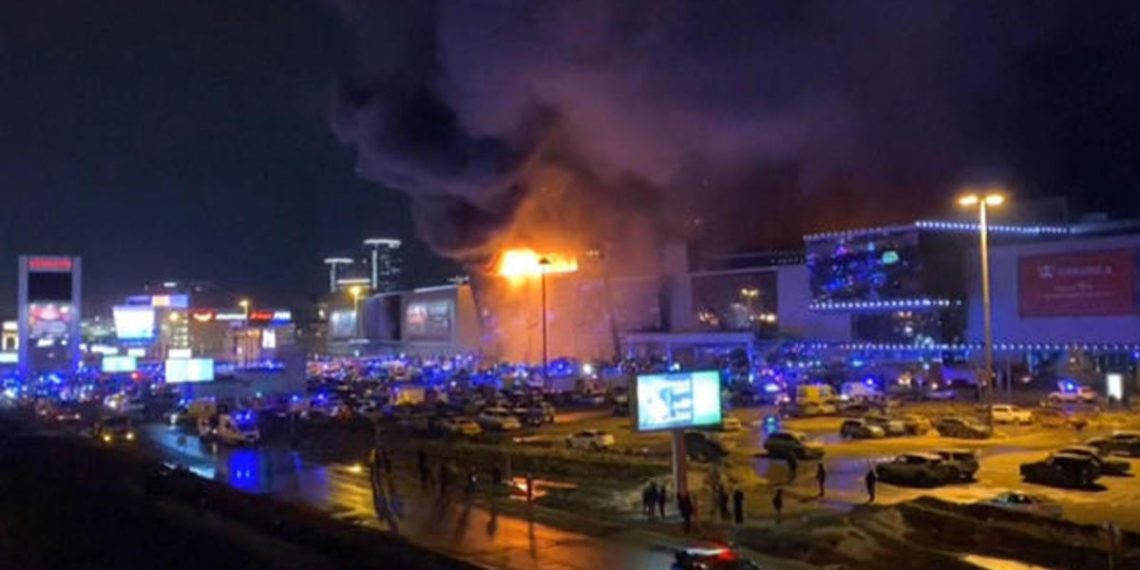Russian Foreign Ministry spokeswoman Maria Zakharova expressed skepticism about Islamic State’s capacity to carry out the attack on a Moscow concert hall last Friday, which claimed the lives of at least 143 individuals.
Moscow continued to assert, without presenting evidence, that Ukraine was behind the assault on the Crocus City Hall, marking Russia’s deadliest incident in two decades.
While the Emergencies Ministry revised the death toll to 143, Islamic State has claimed responsibility for the massacre, with U.S. officials attributing it to the group’s Afghan branch, Islamic State Khorasan. However, Ukraine has vehemently denied any involvement in the attack.

Zakharova criticized Western media for swiftly attributing blame to Islamic State, suggesting it was a ploy to deflect attention from Ukraine and its Western supporters. Russian President Vladimir Putin implicated Islamist militants in the attack, insinuating potential involvement by Ukraine to its advantage.
He suggested that Ukrainian authorities facilitated the gunmen’s escape across the border, a claim Belarusian leader Alexander Lukashenko partly echoed.
Meanwhile, the director of Russia’s FSB security agency implicated Ukraine, along with the United States and Britain, in orchestrating the Moscow attack. However, British Foreign Secretary David Cameron dismissed these assertions as “utter nonsense.”

In Kyiv, Ukraine’s Main Intelligence Directorate head, Kyrylo Budanov, alleged that Russian authorities were aware of attack preparations since mid-February, suggesting they either underestimated the threat or sought to shift blame onto Ukraine.
Amidst the conflicting narratives, a U.S. official disclosed that Washington had warned Moscow of a potential attack in recent weeks.
These revelations contribute to the escalating tensions between Russia and Ukraine, with accusations and counter-accusations exacerbating the strained relations between the two nations.














